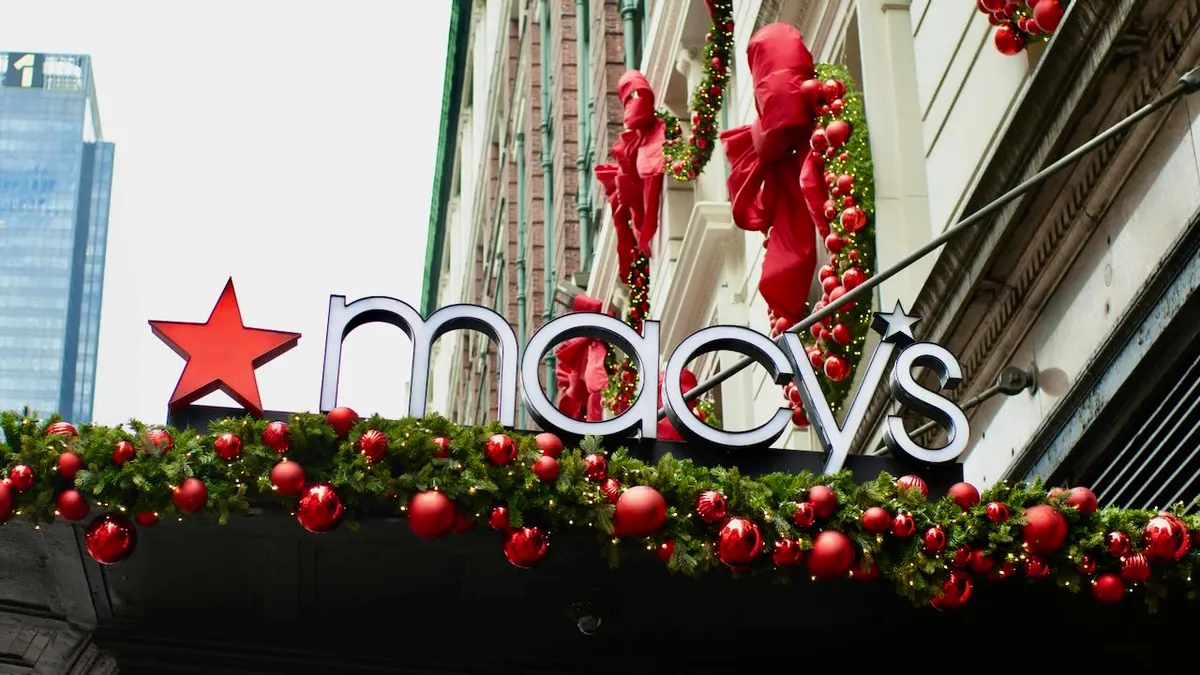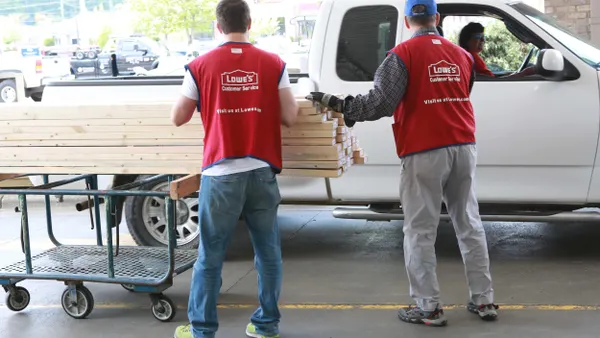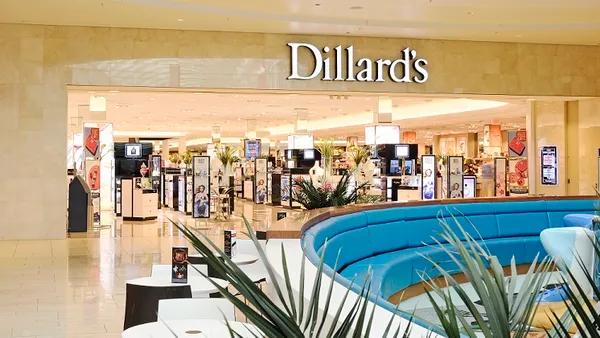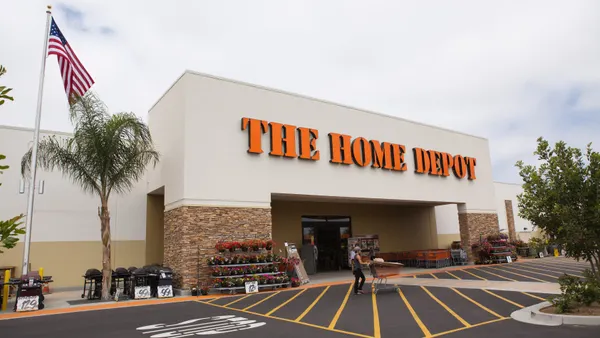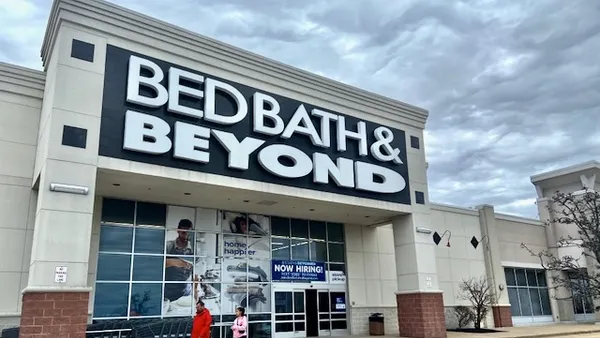Dive Brief:
-
LVMH Luxury Ventures, an arm of luxury conglomerate LVMH established a year ago to invest in small fashion, cosmetics and accessories companies, is investing an undisclosed amount in sneaker and apparel marketplace Stadium Goods, a LVMH spokesperson confirmed to Retail Dive.
-
The LVMH spokesperson pointed out an assessment in a Women's Wear Daily report that "the alignment will further elevate Stadium Goods' standing as an industry leader in the retail activity of highly-coveted streetwear items, and serve as a groundbreaking partnership."
-
Stadium Goods, in addition to the recent infusion from LVMH Luxury Ventures, has to date raised $5.6 million, and last year was gunning for over $100 million in gross merchandise volume, according to WWD.
Dive Insight:
Stadium Goods co-founders John McPheters and Jed Stiller together have experience in e-commerce, venture capital and hospitality, which they said at their 2015 debut has enabled them to forge an "impeccable online marketplace." The company, which has partnered with Alibaba, Amazon, eBay and Zalando, also runs two stores in New York City's Soho neighborhood.
The new LVMH partnership distinguishes Stadium Goods in what has been a rarified and hungry market. Last week, digital sneaker marketplace GOAT announced a merger with sneaker consignment retailer Flight Club, along with a new funding round of $60 million. Online sneaker marketplace StockX a year ago also attracted $6 million in funding from an array of celebrity investors.
But while there was much excitement in the sneaker world about last week's convergence of deals, Matt Powell, vice president and senior industry advisor at The NPD Group, isn't so sure. In response to Business of Fashion's headline last week, "Sneaker Resale Heats Up," Powell tweeted, "I'd say just the opposite."
"As the market is collapsing, early investors are cashing out," he said in a follow-up tweet, regarding the rationale for all the activity. Plus, he told Retail Dive in an interview Monday, the resale market is quite small, and vulnerable to the whims of the brands and the encroachment of buyers and sellers there just to make a buck.
As the market is collapsing, early investors are cashing out
— Matt Powell (@NPDMattPowell) February 10, 2018
"The first thing we have to do is put into perspective that it's really tiny — $500 million," he said. "And that number is a multiple of the primary retail price — if most of the shoes sold for three times their original price, the primary market is closer to $150 million. That $500 million seems like a big number, but not when you put it against the $39 billion in sales that we do in the U.S. in athletic footwear."
Furthermore, sneaker resale, which began as a calling of hard-core aficionados and collectors, has been diluted in recent years by two factors: the entry of sellers Powell refers to as "flippers," (buyers who grab a pair of limited-edition shoes, not because they want to put them on or round out a collection, but purely to make money); and the new tendency of brands to make their limited editions much less limited.
Nike's limited-edition Jordans releases (about 90% of the resale market, according to Powell) fetched top dollar a few years ago, for example, but, with the releases being increased into the thousands, collectors are now often able to find them on the primary market, causing sales to flatten out in 2017, according to Powell.
The sneakerheads who do really wear their shoes belong to a sub-culture of the streetwear style that is looming ever larger in sports footwear sales. On the performance side, running shoe sales fell 7%, and training sales declined 15%, while leisure styles grew 17% and captured $9.6 billion in sales in 2017, according to a report emailed to Retail Dive from NPD Group. Overall, performance sales declined 10% to $7.4 billion, a rate that has accelerated for the last two years, according to NPD, suggesting the athleisure bubble is far from bursting.
That's leading several retailers and brands to jump in. Zappos, for example, unveiled a retail concept last year highlighting classic sneakers, with a dedicated website landing page and pop-ups in New York. Also last year, Lululemon launched three sneaker styles with Athletic Propulsion Labs and Adidas reclaimed the number two spot among the three big players in part thanks to its focus on urban aesthetics and streetwear.






